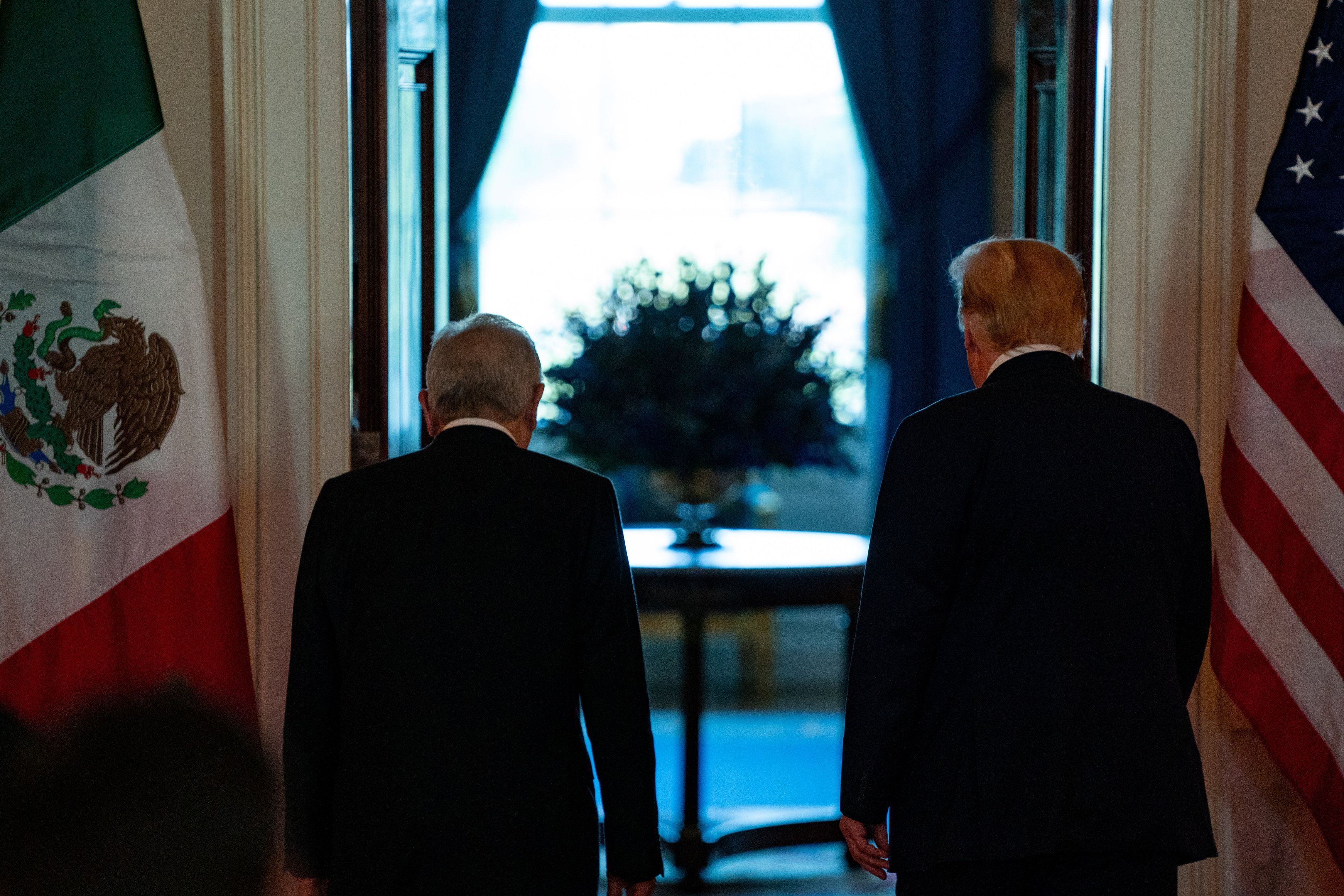News
September 17, 2020
Mexico rejects top drug hub claim: In response to a new US report on the countries that are major transit points and producers of illicit drugs, Mexico's populist president Andrés Manuel López Obrador, known as AMLO, rejected the report's findings — which called out Mexico as one of the world's most prolific drug production hotspots — as merely a matter of "opinion." AMLO said that the accusation is an example of things that come up in its relations with the US that "we [Mexico] don't accept," but made clear that he would not seek confrontation with Washington over the disagreement. Indeed, AMLO's dismissal is remarkable considering he came to power in 2018 in part on his promise to root out crime linked to the country's powerful drug cartels. But to date, crime in Mexico has only exploded under AMLO's watch, while more recently, the country's powerful cartels have exploited the pandemic to expand their operations (evidence suggests that lockdowns have exacerbated the addictions of their US clientele, who account for over $20 billion of Mexican drug sales each year).
Grave concern about Burundi: A new UN report released Thursday said it is "extremely concerned" about the domestic situation under Burundi's new president, Evariste Ndayishimiye. The report called out Ndayishimiye's seeming disregard for human rights, particularly because he has appointed several senior officials to his cabinet who have been the subject of international sanctions over their role in the political chaos of 2015, when the government cracked down on Burundians protesting an election widely deemed to be fraudulent. Ndayishimiye came to power after longtime former President Pierre Nkurunziza — who oversaw a tumultuous tenure, including a failed coup attempt and ongoing civic unrest that forced thousands of Burundians to flee the country in recent years — died suddenly in June. The UN called on the government to release political prisoners and human rights activists, and implored Ndayishimiye to renew consultations with the World Health Organization, whose representatives were expelled from the country after raising concerns about the risks of large political rallies amid a pandemic.
Biden sets Brexit limits on US-UK trade: US presidential candidate Joe Biden has warned that if he wins the White House in November, a future US-UK trade deal is off the table if London returns to a "hard" Irish border after Brexit. Biden was referring to a new law recently proposed by Prime Minister Boris Johnson that authorizes the UK to temporarily suspend parts of its withdrawal agreement with the EU, including rules about the border, if Brussels and London fail to sign a trade deal. Biden says he will not allow the 1998 Good Friday Agreement — which put an end to decades of political violence in Northern Ireland and virtually erased the border between Ireland, an EU member state, and Northern Ireland, which is part of Great Britain — to "become a casualty of Brexit." This forces British Prime Minister Boris Johnson to make a tough choice: continue with his latest gamble on a no-deal Brexit to appease hardliners within his party, or back down to improve his odds of getting a trade deal with the US — which the UK desperately needs — if Biden becomes president. Or he can bet it all on the reelection of President Trump, who is both pro-Brexit and keen on a trade agreement with London.
From Your Site Articles
More For You
Think you know what's going on around the world? Here's your chance to prove it.
Most Popular
Iran is not in the Western Hemisphere. It’s not a vital US security interest, and most Americans don't especially care about what happens in the Middle East.
Walmart is investing $350 billion in US manufacturing. Over two-thirds of the products Walmart buys are made, grown, or assembled in America, like healthy dried fruit from The Ugly Co. The sustainable fruit is sourced directly from fourth-generation farmers in Farmersville, California, and delivered to your neighborhood Walmart shelves. Discover how Walmart's investment is supporting communities and fueling jobs across the nation.
Workers repair a pipe at a compound of Darnytsia Thermal Power Plant which was heavily damaged by recent Russian missile and drone strikes, amid Russia's attack on Ukraine, in Kyiv, Ukraine February 4, 2026.
REUTERS/Valentyn Ogirenko
Democratic Alliance leader John Steenhuisen announced Wednesday that he will not run for a third term as leader of the liberal, pro-business party, after months of internal pressure over a host of controversies – including allegations, since cleared, that he used the party credit card for Uber Eats.
© 2025 GZERO Media. All Rights Reserved | A Eurasia Group media company.
